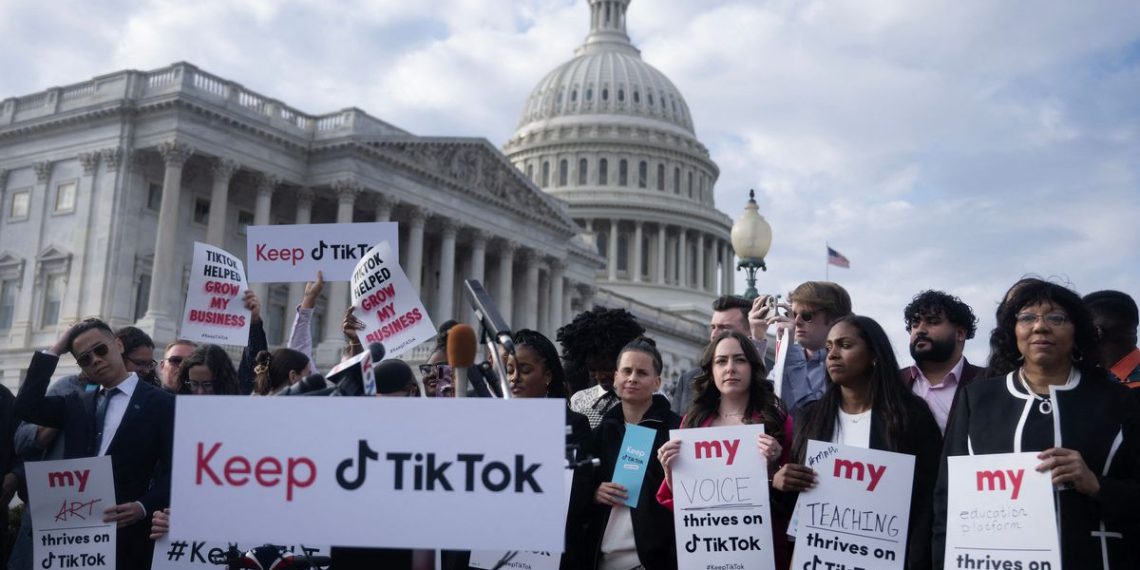The U.S. House of Representatives is set to decide on a crucial bill aimed at compelling ByteDance, the Chinese owner of TikTok, to divest the popular short-video app within six months or risk facing a ban. The vote, scheduled for Wednesday under expedited procedures, requires approval by two-thirds of House members to pass.
This decision comes swiftly after the bill’s proposal, with minimal debate following a single public hearing. Last week, the House Energy and Commerce Committee unanimously approved the bill, advancing it to the full House for consideration.

House Majority Leader Steve Scalise highlighted the urgency of the matter, emphasizing the potential risks posed by the Chinese Communist Party to American families. Meanwhile, TikTok CEO Shou Zi Chew is expected to visit Capitol Hill on Wednesday for discussions with senators, coinciding with his pre-scheduled trip.
TikTok strongly opposes the bill, characterizing it as a predetermined path toward a total ban in the United States. The company argues that such legislation infringes upon the constitutional right to free expression for its 170 million American users.
Despite some opposition within the House, including concerns about the rushed legislative process, many lawmakers are motivated by a desire to safeguard users’ interests. However, the bill’s fate remains uncertain in the Senate, where different approaches are being considered.

President Joe Biden has indicated his willingness to sign the bill, reflecting growing bipartisan concerns about national security risks associated with Chinese ownership of TikTok.
White House national security adviser Jake Sullivan emphasized the goal of ending Chinese ownership of the app, highlighting concerns over data privacy and security.
The proposed legislation would grant ByteDance 165 days to divest TikTok, failing which major app stores like Apple and Google would be prohibited from offering the app. The outcome remains unclear, as questions linger about China’s approval and the feasibility of divestment within the stipulated timeframe.





